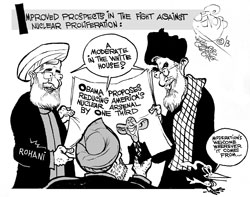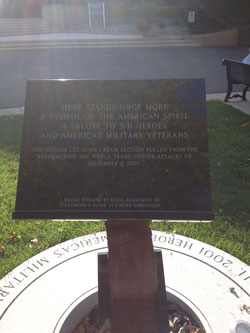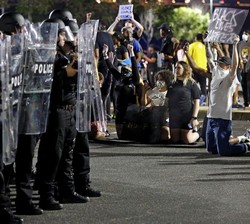The tension between the two nation’s leaders began with Prime Minister Netanyahu’s invitation to speak in front of Congress on March 3 to address the Obama Administrations controversial nuclear negotiations with Iran that 59 percent of Americans do not trust that Iran would follow, according to the Monmouth University Polling Institute. Dr. Kenneth Mitchell, associate professor of political science, said, “Prime Minister Netanyahu’s speech to Congress was a disaster for USA-Israeli relations.”
Israel, has been one of the US’s closest and most important allies since its establishment as the world’s only Jewish state in 1949 – especially important in terms of Middle East relations. According to a 2012 Gallup Poll, Americans ranked Israel as within the top ten US’s most favorable allies, a list also including Japan, France and India, among others The country the size of New Jersey, has proved to be an essential ally in the Middle East due to its democratic government, religious and moral values, and national interests that are similar to those of the US. However, these similarities and interests do not always line up, as seen by the recent friction between the Obama Administration and the Israeli Prime Minister, Benjamin Netanyahu.
Obama’s anti-Netanyahu actions have proved to be controversial as well. The friction escalated when President Obama reacted by sending his 2012 national field director to Israel to fund against Netanyahu’s campaign for re-election which he wound up winning, according to the Washington Post.
Junior criminal justice major, Trevor Good, said, “Any nuclear deal made with Iran has the possibility to further disrupt our relationship with Israel. Our relationship with Israel is already distressed due to decisions made by Obama. We don’t need to further disturb our relationship with one of our greatest allies.”
One of the issues that is at the root of this controversy is the disagreement with how to handle Iran. Dr. Saliba Sarsar, professor of political science and Associate Vice President of Global Initiatives, said that Obama is looking for a “long term solution” through his nuclear negotiations with Iran. Sarsar said, “to end the nuclear ambitions of Iran could eventually lead to a nuclear free Middle East.”
On the other hand, the threat of Iran has been growing because of the instability in Iraq. In Netanyahu’s speech to Congress, he said, “In the Middle East, Iran now dominates four Arab capitals, Baghdad, Damascus, Beirut, and Sanaa. If Iran’s aggression is left unchecked, war will surely follow. Mitchell noted, “Iran is winning on the ground in Iraq and Yemen.”
According to the LA Times, the U.S. airstrikes in Iraq to fight Daesh (the Arabic term for the self-proclaimed Islamic State) are in support of Iraq’s mostly Shiite military which is backed by Iran and in Yemen, the US is providing intelligence and logistical support to Saudi Arabia, who launched airstrikes against Shiite rebels that are attempting to overthrow the Sunni dominated country. So the US finds itself on the side of Iran in one fight and against them in another. Sarsar refers to this complex system of alliances in the Middle East as “strange bed fellows” which complicate matters of diplomacy.
However, despite the network of alliances, Sarsar said, “Most Middle Eastern Nations are fearful of a nuclear capable Iran.” In Netanyahu’s speech, he warned, “Don’t be fooled. The battle between Iran and ISIS doesn’t turn Iran into a friend of America.” Then he continued, “When it comes to Iran and ISIS, the enemy of your enemy is your enemy.”
The other part of the tension between the U.S. and Israel is the solution to the ongoing Palestinian conflict.
According to the Wall Street Journal, the US has raised the pressure on the Israelis by leaving open the possibility of letting the United Nations set a deadline for a solution for a Palestinian State. This is a major change to the US’s usual diplomacy on the issue, in which they normally oppose such resolutions by exercising their veto power as a member of the United Nations Security Council.
Sarsar said, he “supports a two state solution” and believes that the solution can improve US and Israeli relations along with relations with the Middle East as a whole.
In an article which he co-authored that was published in the Star Ledger, he said: “Ironically, the regional dynamics are conducive to make progress toward peace. The Middle East is undergoing major upheavals and radicalization, particularly with advances made by the brutal Islamic State in Iraq and Syria. A Shiite Iran with hegemonic and nuclear ambitions has caused deep concern among Sunnis.”
The article continued, “Therefore, most Palestinians (those represented by Fatah), as well as Egypt, Jordan, Saudi Arabia and other Gulf states all share common strategic interests with Israel in blocking Iran’s influence and preventing the growth of extremist violence. An Israeli-Palestinian peace agreement would serve these broader interests.”
Sarsar said that a solution “is possible” and concluded in his article that, “It is a basic truth that only a permanent conflict-ending agreement based on two states can lead to normalized relations between the Arab states and Israel. This would not solve all the Middle East’s conflicts by a long shot. But it would enhance regional stability and advance important US national interests.”
IMAGE TAKEN from otherword.com



